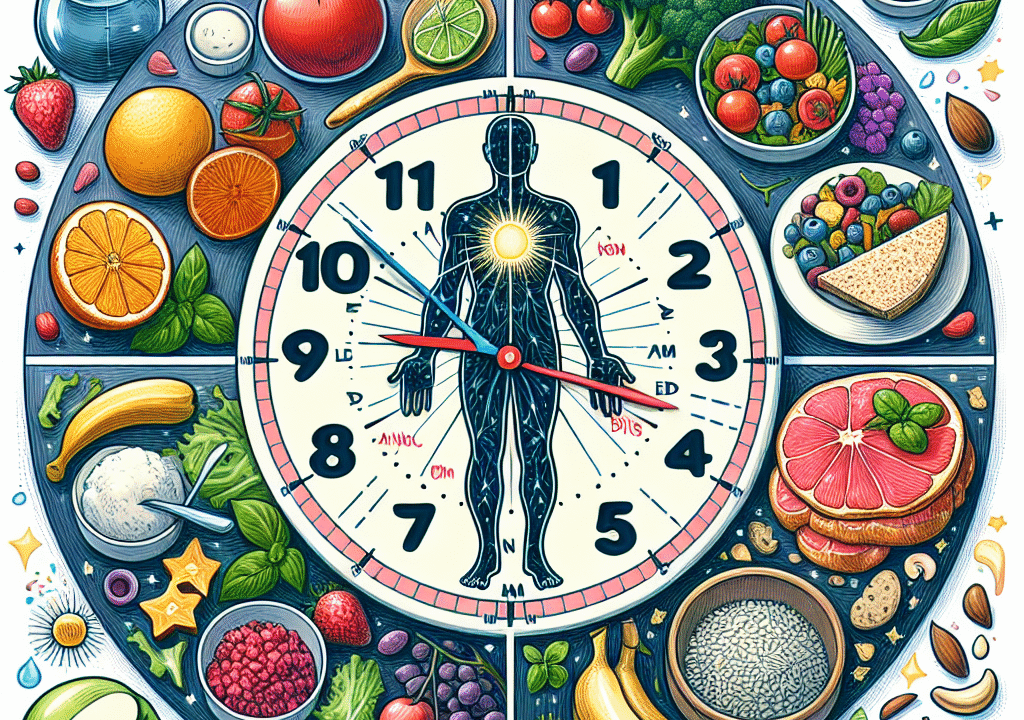
Combat Chronic Inflammation with Your Plate
In recent years, researchers have discovered the powerful role chronic inflammation plays in diseases including heart disease, arthritis, diabetes, and even cancer. While inflammation is part of a healthy immune response, chronic inflammation is a low-level, long-term condition that can quietly damage cells and organs—often without noticeable symptoms until serious illness begins. According to the World Health Organization, diseases linked to chronic inflammation are on track to become the leading cause of death worldwide.
Here’s the positive twist: what you eat can either fuel or fight inflammation.
Scientific studies continue to show that the Mediterranean diet offers more than delicious meals—it offers a therapeutic approach to wellness. Loaded with antioxidants, omega-3 fatty acids, and whole foods packed with fiber, this dietary style marries traditional eating patterns with modern science and earns consistent praise from nutrition experts.
What Is Chronic Inflammation and Why Does It Matter?
Understanding how food affects inflammation starts with understanding what chronic inflammation is. Unlike acute inflammation—which triggers swelling around a cut or a fever from an infection—chronic inflammation is a silent, ongoing process that damages tissues over time.
Common triggers include:
– Diets high in refined sugars, processed foods, and unhealthy fats
– Sedentary lifestyles
– Sleep deprivation
– Persistent exposure to pollutants and stress
“Chronic inflammation is like a slow burn,” explains Dr. Frank Hu, professor of nutrition at Harvard T.H. Chan School of Public Health. “You may not feel it, but it’s quietly contributing to conditions like heart disease, Alzheimer’s, and cancer.”
The good news is that your next meal can be a step toward reducing that silent damage.
Why the Mediterranean Diet Heals From Within
The power of the Mediterranean diet comes from its roots in traditional eating habits across regions like Greece, Italy, and Spain. It isn’t just a diet—it’s a proven way of eating that supports lifelong health. Some experts regard it as the healthiest diet on the planet.
Studies show that people who follow this diet enjoy:
– A 20 to 30 percent reduced risk of cardiovascular disease
– Lower blood markers of inflammation, including C-reactive protein (CRP)
– Better blood sugar management and improved outcomes for autoimmune conditions
The classic Mediterranean approach emphasizes:
– Plenty of vegetables and fruits
– Whole grains, legumes, nuts, and seeds
– Fish and seafood at least twice per week
– Extra virgin olive oil as the main source of fat
– Limited consumption of red meat and processed foods
– Moderate wine consumption
Let’s break down the essential anti-inflammatory foods that should be part of your daily routine.
Extra Virgin Olive Oil: The Gold Standard for Inflammation Relief
Extra virgin olive oil is the crown jewel of Mediterranean cooking. It’s packed with oleocanthal, a natural compound with anti-inflammatory effects similar to ibuprofen.
A 2022 study in the journal Nutrients confirmed that EVOO helps reduce systemic inflammation and raises levels of powerful antioxidants.
Ideas for use: Drizzle it over roasted vegetables, mix into hummus, or blend into smoothies for added creaminess and health benefits.
Fatty Fish: Omega-3s That Calm Inflammatory Responses
Fatty fish like salmon, sardines, and mackerel provide two crucial omega-3 fatty acids—EPA and DHA. These help reduce the production of cytokines, which are harmful molecules that fuel inflammation. The American Heart Association notes that eating fish twice per week can lower the risk of heart disease by up to 36 percent.
Ideas for use: Grill salmon with fresh herbs or spread mashed sardines onto whole-grain crackers or toast.
Leafy Greens: Antioxidant-Rich Nutrition for Every System
Spinach, kale, and arugula are rich in vitamins K and C, along with flavonoids that help reduce oxidative stress in body tissues. Their high fiber content also supports a healthy gut microbiome—a key player in immune regulation.
Ideas for use: Toss spinach with walnuts, olive oil, and fresh berries for a blood sugar-balancing salad.
Tomatoes: A Versatile Source of Lycopene
Tomatoes are brimming with lycopene, an antioxidant shown to help reduce inflammation in arteries and lungs. Cooking tomatoes boosts the availability of lycopene, making pasta sauce or soups an ideal way to enjoy them.
Ideas for use: Simmer fresh tomatoes with garlic and herbs to create a flavorful anti-inflammatory sauce.
Nuts and Seeds: Small Ingredients, Big Benefits
Nuts like almonds and walnuts, along with seeds like chia and flax, offer powerful anti-inflammatory benefits. They’re packed with omega-3 fats, magnesium, and plant fiber. Just one tablespoon of chia seeds delivers around 5 grams of omega-3s.
Ideas for use: Add chia seeds to your yogurt or blend almonds into oatmeal. Keep a small container of mixed nuts on hand for on-the-go snacking.
Legumes: Fiber-Filled Powerhouses
Lentils, beans, and chickpeas provide fiber, polyphenols, and plant-based protein that stabilize blood sugar and reduce inflammation. According to researchers at Harvard, eating legumes four times a week is linked to a 22 percent lower risk of heart disease.
Ideas for use: Whip up a lentil soup or add seasoned chickpeas to grain bowls for texture and depth.
Herbs and Spices: More Than Just Flavor
Many herbs and spices have natural healing properties. Turmeric contains curcumin, which can block inflammation at the molecular level. Garlic is rich in sulfur compounds that reduce inflammation and support immune health.
Ideas for use: Brew turmeric tea with a pinch of black pepper or rub crushed garlic and rosemary onto vegetables before roasting.
Lifestyle Tips to Support an Anti-Inflammatory Diet
While food is central to managing inflammation, lifestyle habits play a crucial supporting role. The Mediterranean lifestyle emphasizes more than diet—it champions balance, movement, relaxation, and social connection.
To amplify your results:
– Get moving: Aim for at least 30 minutes of physical activity daily
– Manage stress: High cortisol from chronic stress raises inflammation levels
– Prioritize sleep: Aim for 7 to 8 hours of rest each night
– Eat mindfully: Turn off screens, chew slowly, and enjoy the eating experience
Closing Thoughts: Let Food Be Your Everyday Medicine
While anti-inflammatory medications have their place, evidence increasingly supports the long-term benefits of managing inflammation through diet. The Mediterranean approach offers a sustainable and enjoyable way to reduce inflammation naturally—without side effects.
Simple starting points include:
– Replacing vegetable oil with extra virgin olive oil
– Adding two fish meals to your weekly menu
– Swapping processed snacks for omega-3 rich nuts and seeds
As Hippocrates wisely said, “Let food be thy medicine, and medicine be thy food.”
Get Started Tonight with a Healing Recipe
Try this delicious and healthy meal to launch your anti-inflammatory lifestyle:
Prepare a warm lentil and kale salad dressed with olive oil and fresh lemon juice. Serve it with oven-roasted salmon and a small glass of red wine. Every bite supports your heart, joints, and brain—so you feel better tomorrow.
References
1. Hu FB. “Diet and Lifestyle Inflammation and the Risk of Chronic Disease.” Harvard T.H. Chan School of Public Health. https://www.hsph.harvard.edu
2. U.S. News & World Report. “Best Diets Overall 2024.” https://health.usnews.com/best-diet
3. Widmer RJ, et al. “Beneficial Effects of a Mediterranean Diet on Endothelial Function and Cardiovascular Risk Factors.” Circulation Research. 2015;117(9):e1–e8.
4. Lucas L, et al. “Oleocanthal: A Natural Anti-Inflammatory Agent in Extra-Virgin Olive Oil.” Current Pharmaceutical Design. 2011.
5. Schröder H, et al. “Olive Oil Consumption and Risk of Mortality, Cardiovascular Disease, and Cancer in the PREDIMED Study.” Nutrients. 2022.
6. American Heart Association. “Omega-3 Fatty Acids & Heart Health.” https://heart.org
7. Harvard Health. “Why legumes are a heart-healthy food.” https://www.health.harvard.edu
8. Aggarwal BB, et al. “Curcumin: The Indian Solid Gold.” Advances in Experimental Medicine and Biology. 2007.


